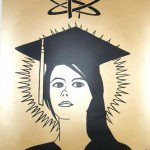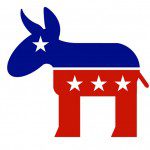![16_abraham_lincoln[1]](https://wp-media.patheos.com/blogs/sites/305/2017/07/16_abraham_lincoln1-e1499196493980.jpg)
The purpose of the Declaration of Independence was for the American colonies to formally break away from Great Britain and to form a separate country.
As Abraham Lincoln observed, this could have been done without all of that material in the second paragraph about God, equality, and unalienable rights:
We hold these truths to be self-evident, that all men are created equal, that they are endowed by their Creator with certain unalienable Rights, that among these are Life, Liberty and the pursuit of Happiness.
So why did the Founders include this? Especially since many of them, including the author of these words, were slave holders who did not act on the principle that “all men are created equal” and hold God-given rights, including that of liberty.
Lincoln gives a remarkably good answer to this question, as discussed by columnist Michael Gerson.
From Michael Gerson, America isn’t a normal country – The Washington Post:
As Abraham Lincoln noted, the Declaration could have established national independence without its second paragraph about the human rights to “life, liberty and the pursuit of happiness.” “The assertion that ‘all men are created equal,’ ” Lincoln argued, “was of no practical use in effecting our separation from Great Britain.” As he saw it, the Founders, while constrained by the political realities of their time, set out a non-arbitrary, timeless truth “for future use.”
“They meant simply to declare the right,” said Lincoln, “so that the enforcement of it might follow as fast as circumstances should permit. They meant to set up a standard maxim for free society, which should be familiar to all, and revered by all; constantly looked to, constantly labored for . . . even though never perfectly attained.”
Why is that maxim so important? At one level, Lincoln’s answer was bluntly practical. If liberty is denied to anyone, it could eventually be denied to you. “And when you have stricken down the principles of the Declaration of Independence,” he said, “and thereby consigned the Negro to hopeless and eternal bondage, are you quite sure that the demon will not turn and rend you? Will not the people then be ready to go down beneath the tread of any tyrant who may wish to rule them?”
But Lincoln also saw the Declaration as the embodiment of a moral ideal. “It was not the mere matter of the separation of the colonies from the motherland; but something in that Declaration giving liberty, not alone to the people of this country, but hope to the world for all future time. It was that which gave promise that in due time the weights should be lifted from the shoulders of all men, and that all should have an equal chance.”. . .
Lincoln accused politicians who dismiss or play down the Declaration of “blowing out the moral lights around us.”
[Keep reading. . .]
Photograph from WhiteHouse.gov [Public Domain]


![16_abraham_lincoln[1]](https://wp-media.patheos.com/blogs/sites/305/2017/07/16_abraham_lincoln1-e1499196493980.jpg)











